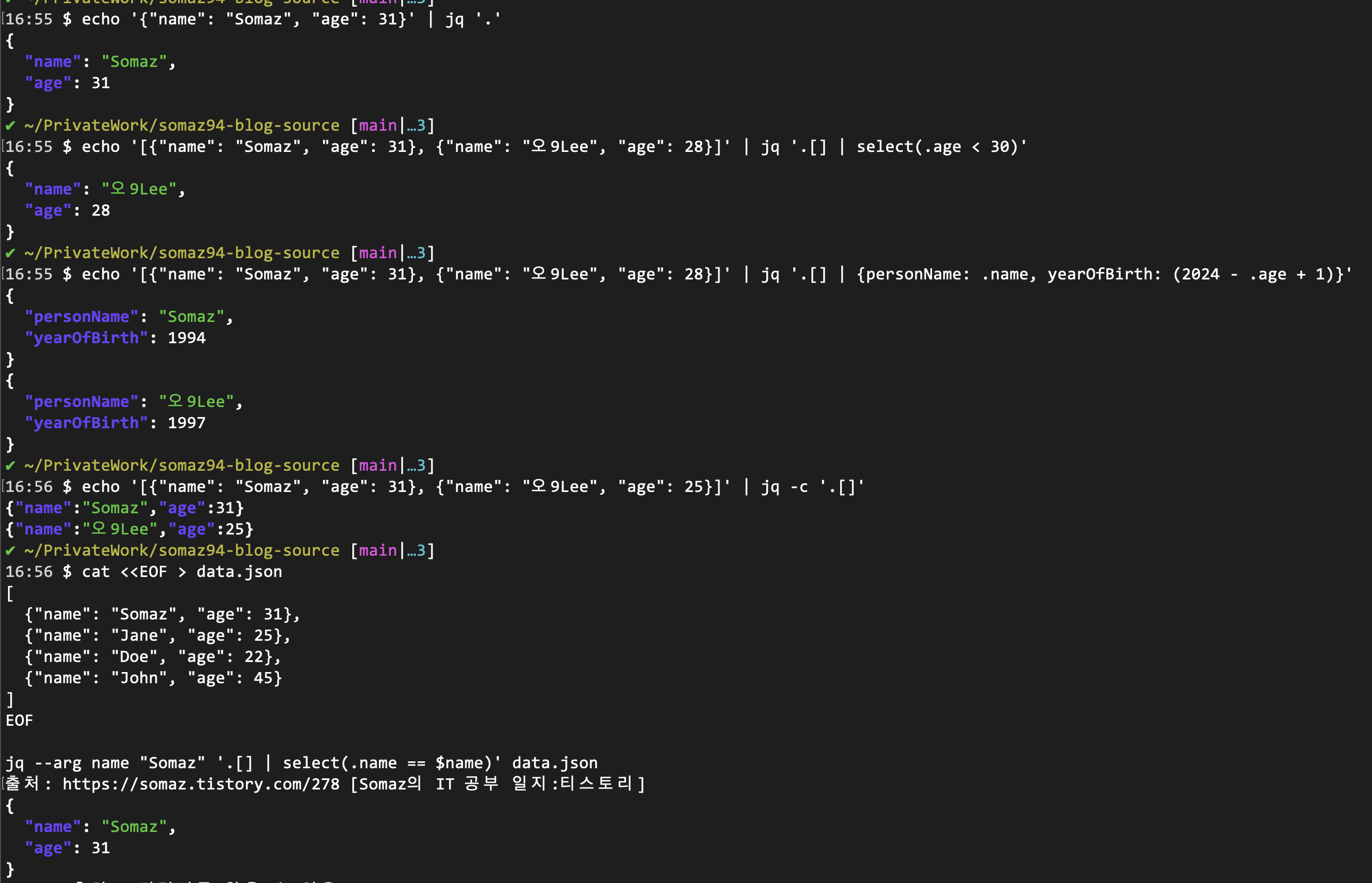3 min to read
What is jq?
Learn how to use jq command effectively for JSON processing

Overview
As working with JSON data becomes increasingly common, there’s a need for tools that can process JSON directly from the command line. jq has become an essential utility for handling JSON-formatted data across various systems.
What is jq?
jq is a lightweight command-line JSON processor. It can filter, map, transform, and manipulate JSON data with ease, making it an indispensable tool for data processing tasks.
Installation Methods
1️⃣ Using Package Managers
# apt
sudo apt-get update
sudo apt-get install jq
# apt (specific version)
sudo apt-get install jq=1.5*
# yum
sudo yum install jq
# yum (specific version)
sudo yum install jq-1.5
# dnf
sudo dnf install jq
2️⃣ From Source Code
# Latest version
git clone https://github.com/stedolan/jq.git
cd jq
autoreconf -i
./configure
make
sudo make install
# Specific version
git clone https://github.com/stedolan/jq.git
cd jq
git checkout jq-1.5
autoreconf -i
./configure
make
sudo make install
🛠️ Basic Usage
1️⃣ Simple Element Extraction
# Output single element
echo '{"name": "Somaz", "age": 31}' | jq '.name'
# Output
"Somaz"
# Output entire object
echo '{"name": "Somaz", "age": 31}' | jq '.'
# Output
{
"name": "Somaz",
"age": 31
}
2️⃣ Filtering
# Filter by condition
echo '[{"name": "Somaz", "age": 31}, {"name": "Oh9Lee", "age": 28}]' | jq '.[] | select(.age < 30)'
# Output
{
"name": "Oh9Lee",
"age": 28
}
# Filter by pattern matching
echo '[{"name": "Oh9Lee", "face": "squid"}, {"name": "Oh9Lee", "face": "cuttlefish"}]' | jq '.[] | select(.face | test("^squid"))'
# Output
{
"name": "Oh9Lee",
"face": "squid"
}
🚄 Advanced Usage
1️⃣ Mapping and Transformation
echo '[{"name": "Somaz", "age": 31}, {"name": "Oh9Lee", "age": 28}]' | jq '.[] | {personName: .name, yearOfBirth: (2024 - .age + 1)}'
# Output
{
"personName": "Somaz",
"yearOfBirth": 1994
}
{
"personName": "Oh9Lee",
"yearOfBirth": 1997
}
2️⃣ Conditional Output
echo '[{"name": "Somaz", "age": 31}, {"name": "Oh9Lee", "age": 28}]' | jq 'map(if .age > 30 then .name else empty end)'
# Output
[
"Somaz"
]
⚙️ Useful Options
1️⃣ Raw Output (-r)
Remove quotes from the output.
echo '{"name": "Somaz", "age": 31}' | jq -r '.name'
# Output
Somaz
2️⃣ Compact Output (-c)
Output in a compact format.
echo '[{"name": "Somaz", "age": 31}, {"name": "Oh9Lee", "age": 25}]' | jq -c '.[]'
# Output
{"name":"Somaz","age":31}
{"name":"Oh9Lee","age":25}
3️⃣ Using Arguments (–arg)
Pass arguments to jq.
# Create data.json
cat <<EOF > data.json
[
{"name": "Somaz", "age": 31},
{"name": "Jane", "age": 25},
{"name": "Doe", "age": 22},
{"name": "John", "age": 45}
]
EOF
jq --arg name "Somaz" '.[] | select(.name == $name)' data.json
# Output
{
"name": "Somaz",
"age": 31
}


Comments